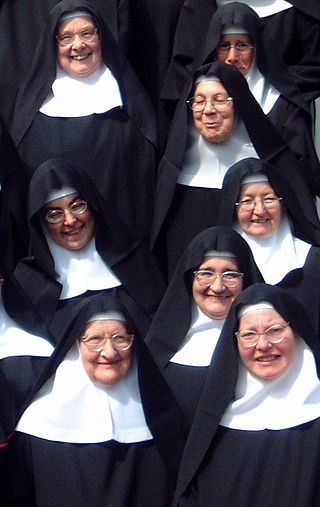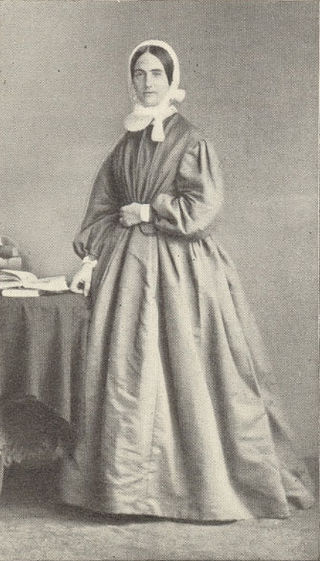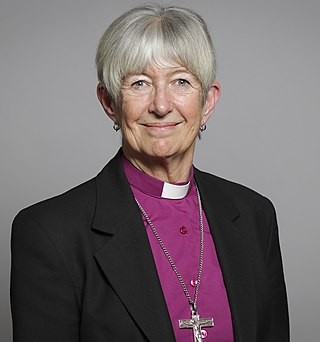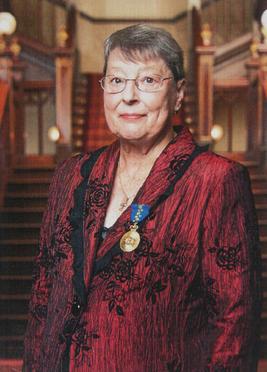Related Research Articles
Anglicanism is a Western Christian tradition that has developed from the practices, liturgy, and identity of the Church of England following the English Reformation, in the context of the Protestant Reformation in Europe. It is one of the largest branches of Christianity, with around 110 million adherents worldwide as of 2001.

A deacon is a member of the diaconate, an office in Christian churches that is generally associated with service of some kind, but which varies among theological and denominational traditions. Major Christian churches, such as the Catholic Church, the Oriental Orthodox Churches, the Eastern Orthodox Church, the Scandinavian Lutheran Churches, the Methodist Churches, the Anglican Communion, and the Free Church of England, view the diaconate as an order of ministry.

A nun is a woman who vows to dedicate her life to God, typically living under vows of poverty, chastity, and obedience in the enclosure of a monastery or convent. The term is often used interchangeably with religious sisters who do take simple vows but live an active vocation of prayer and charitable work.

The Lambeth Conference is a decennial assembly of bishops of the Anglican Communion convened by the Archbishop of Canterbury. The first such conference took place at Lambeth in 1867.

The ministry of a deaconess is a usually non-ordained ministry for women in some Protestant, Oriental Orthodox, and Eastern Orthodox churches to provide pastoral care, especially for other women, and which may carry a limited liturgical role. The word comes from the Greek diakonos (διάκονος), for "deacon", which means a servant or helper and occurs frequently in the Christian New Testament of the Bible. Deaconesses trace their roots from the time of Jesus Christ through to the 13th century in the West. They existed from the early through the middle Byzantine periods in Constantinople and Jerusalem; the office may also have existed in Western European churches. There is evidence to support the idea that the diaconate including women in the Byzantine Church of the early and middle Byzantine periods was recognized as one of the major non-ordained orders of clergy.
Graham Douglas Leonard was an English Roman Catholic priest and former Anglican bishop. His principal ministry was as a bishop of the Church of England but, after his retirement as the Bishop of London, he became a Roman Catholic, becoming the most senior Anglican cleric to do so since the English Reformation. He was conditionally ordained to the priesthood in the Roman Catholic Church and was later appointed a monsignor by Pope John Paul II.

Anthony Wilson Thorold was an Anglican Bishop of Winchester in the Victorian era. The son of a Church of England priest, he also served as Bishop of Rochester. It was in that role that he travelled throughout North America and met with leaders of the Church of Jesus Christ of Latter-day Saints. While he wrote a number of devotional books, he is best remembered for having recruited Isabella Gilmore to revive the female diaconate in the Anglican Communion.

Anglican religious orders are communities of men or women in the Anglican Communion who live under a common rule of life. The members of religious orders take vows which often include the traditional monastic vows of poverty, chastity and obedience, or the ancient vow of stability, or sometimes a modern interpretation of some or all of these vows. Members may be laity or clergy, but most commonly include a mixture of both. They lead a common life of work and prayer, sometimes on a single site, sometimes spread over multiple locations. Though many Anglicans are members of religious orders recognized by the Anglican Communion, others may be members of ecumenical Protestant or Old Catholic religious orders while maintaining their Anglican identity and parochial membership in Anglican churches.

The Anglican ministry is both the leadership and agency of Christian service in the Anglican Communion. "Ministry" commonly refers to the office of ordained clergy: the threefold order of bishops, priests and deacons. More accurately, Anglican ministry includes many laypeople who devote themselves to the ministry of the church, either individually or in lower/assisting offices such as lector, acolyte, sub-deacon, Eucharistic minister, cantor, musicians, parish secretary or assistant, warden, vestry member, etc. Ultimately, all baptized members of the church are considered to partake in the ministry of the Body of Christ.

The Community of St. Francis (CSF) is a Franciscan Anglican religious order of sisters founded in 1905, and is the oldest surviving Anglican Franciscan religious community. As First Order sisters, the CSF is an autonomous part of the Society of St. Francis, which also includes the Order of St. Clare, and a Third Order of secular members living as a dispersed community. Living under a Franciscan Rule, the sisters' primary vocation is prayer, study, and work in the context of community life. Some sisters serve as priests, and others live a solitary life.

Isabella Gilmore was an English churchwoman who oversaw the revival of the Deaconess Order in the Anglican Communion. Isabella served actively in the poorest parishes in South London for almost two decades and she is remembered with a commemoration in the Calendar of saints in some parts of the Anglican Communion on 16 April. She was the sister of William Morris.
Reginald Somerset Ward was an English Anglican priest, author and spiritual director.

Elizabeth Catherine Ferard was a deaconess credited with revitalising the deaconess order in the Anglican Communion. She is now remembered in the Calendar of saints in some parts of the Anglican Communion on either 3 or 18 July.
Joan Elizabeth Spencer-Smith (1891–1965) was a notable New Zealand Anglican deaconess and lecturer. She was born in London, London, England in 1891. Her brother was the Rev. Arnold Spencer-Smith chaplain and photographer to Shackleton's Imperial Trans-Antarctic Expedition.

Christine Elizabeth Hardman is a retired British Anglican bishop and former Lord Spiritual. She served as Archdeacon of Lewisham, 2001–2008; Archdeacon of Lewisham & Greenwich, 2008–2012; and Bishop of Newcastle, 2015–2021.
Former religious orders in the churches of the Anglican Communion are those communities of monks, nuns, friars, or sisters, having a common life and rule under vows, whose work has ended and whose community has been disbanded. In a very few cases this is due to the termination of the work for which the community was established, but in most cases it is due to amalgamation or the death of the final remaining member of the community.

Rose Josephine Hudson-Wilkin, is a British Anglican prelate, who serves as Suffragan Bishop of Dover in the diocese of Canterbury - deputising for the Archbishop - since 2019: she is the first black woman to become a Church of England bishop. She was previously Chaplain to the Speaker of the House of Commons from 2010 to 2019, having trained with the Church Army before entering parish ministry.

Margaret Rodgers AM was a prominent deaconess and lay-person in the Anglican Diocese of Sydney. Rodgers was Principal of Deaconess House, (1976–85), Research Officer for the Anglican General Synod (1985–93), chief executive officer of the Anglican Media Council (1994–2003), President of the New South Wales Council of Churches and Lay Canon of St Andrew's Cathedral, Sydney.

Marion Macfarlane was the first woman to be ordained in the Anglican Church in Australia. She was ordained to the "Female Diaconate" in 1884 in the Diocese of Melbourne, then in 1886 converted to Catholicism, took the name Sister Mary Euphrasia, and joined the Sisters of the Good Shepherd.
Mary Schleicher (1855-1949) was the first deaconess in the Anglican Diocese of Sydney, appointed in 1886 to Newtown parish.
References
The (Deaconess) Community of St Andrew, 1861–2011, Revd Dr Sr Teresa Joan White, CSA, 2013 (2nd printing). n.b. no priests until 1994.
